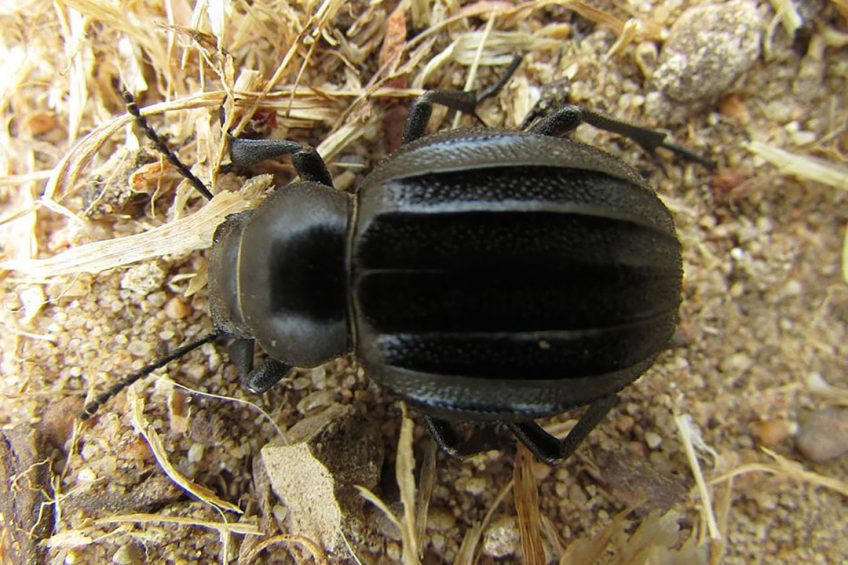Best Practice on Farm Guide: Darkling beetle control

Poultry breeding company Aviagen has produced a best practice on farm guide for poultry producers to control Darkling Beetle.
The beetle, which can be found in poultry houses across the globe, are vectors for common viruses such as Infectious Bursal Disease Virus (IBDV), Marek’s Disease Virus (MDV) and Reovirus, as well as bacterial such as E.Coli and Salmonella spp. and protozoa, such as Histomonas meleagridis.
The diseases can be spread by darkling beetles through direct contact, recontamination of the disinfected environment by the reuse of litter or by being ingested by the bird directly.
Life cycle
The life cycle of the darkling beetle is between 40-100 days and depends on environmental factors. After the initial 15 days after mating, females can lay between 200-400 eggs every 1 to 5 days, with eggs taking less than 1 week to hatch as larvae. Therefore the population can multiply considerably if no effective control is available.
Control
Controlling or eliminating the darkling beetle can be difficult – they thrive in house conditions of between 21-35C (70-95F) with a littler moisture of at least 10%.
The guide says identifying common locations for beetle populations within the house is fundamental to their control. The beetles can be located in a range of places:
- The litter
- Beside pillars
- In curtains
- In nests
- On slats, feeders, drinkers of other equipment
- In gaps, holes or cracks in the wall
- In storage rooms and egg collection areas
Chemical and physical methods work best for control with an insecticide application followed by detailed cleaning and disinfection the way forward. Control measures can be deemed successful if the population is contained to between 1-10 beetles per 1 square foot.
Insecticides should be applied immediately after depopulation of birds and should be applied both inside and outside the poultry house. Once the house temperature reduces, darkling beetles will begin to migrate to a warmer location, so the outside of the house must be spread to prevent migration to other houses on the farm.
It should also be used before the chick placement and then applied every month during the production period, but farmers should ensure the insecticide is approved for application with live birds in the house.
Insecticide use
The guide says it is important for farmers to follow manufacturer’s guidelines for safety and proper mixing and to rotate on a recommended cycle.
- Ensure the water used for mixing the insecticide is of a neutral pH, and always follow the instructions to acidify the water before use. Rinse the spray equipment before use to avoid contamination
- Rotate insecticides at least every 2-3 flocks for best results, reducing the chance of darkling beetles developing chemical resistance
Physical control
- Implementing a good house cleaning and disinfection programme significantly controls populations:
- Live darkling beetles should be eradicated when preparing the house for cleaning and disinfection, before washing and sanitising the house
- When removing house equipment, check both removable and fixed house equipment, under feeders and drinkers, along walls and curtains, on slats and in nest boxes for signs of the beetle
- Following detailed cleaning and disinfection will ensure the beetle residue and any bacterial contamination they leave behind will be removed.
- Closed poultry houses with good water drainage and smooth cement floor will reduce darkling beetle populations.












